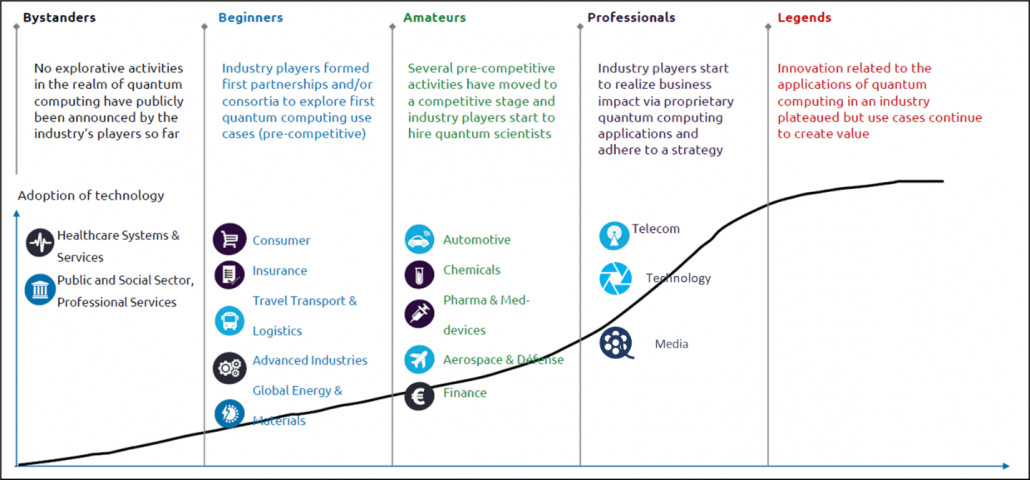As we stand on the precipice of the quantum revolution, one must consider the myriad implications that quantum computing will wield over the next decade. This transformative technology, often likened to the shifting sands of a desert, promises to reshape landscapes previously thought immutable. Just as fire could cook food and forge tools, quantum computing possesses a dual nature—it holds the potential for both immense societal progress and ethical conundrums. By delving into the multifaceted impact of quantum computing, we can explore how this innovation will alter the realms of science, industry, and daily life.
To comprehend this paradigm shift, one must first grasp the fundamental principles that underlie quantum computing. Unlike classical computers, which manipulate bits as binary entities (0s and 1s), quantum computers leverage the principles of superposition and entanglement. These phenomena enable qubits to exist in multiple states simultaneously, exponentially increasing computational power and facilitating complex problem-solving capabilities. Therefore, the next decade will unveil applications that seem heretofore unimaginable—each advancement a building block towards a new technological edifice.
Transforming Scientific Research
One of the most intriguing arenas wherein quantum computing will exert its influence is scientific research itself. Imagine a physicist grappling with the intricacies of molecular interactions, endeavoring to design a new drug with precision akin to a masterful painter wielding a fine brush. Traditional supercomputers, while impressive, encounter exponential challenges in simulating quantum systems, often yielding incomplete insights. However, the advent of quantum computing offers the promise of a profound epistemic shift. Researchers will be empowered to model complex biochemical interactions at the quantum level with unprecedented accuracy, facilitating breakthroughs in pharmaceuticals and materials science.
Consider the implications of this leap forward—ushering in a new era of personalized medicine, where treatments can be tailored to the individual’s genetic makeup. By simulating molecular interactions swiftly, quantum computers could lead to the rapid identification of viable drug candidates, thereby expediting the often long and tortuous path of clinical trials. In essence, the synergy between quantum computing and biomedicine could herald a renaissance of health optimization, akin to an artist unveiling a previously concealed masterpiece.
Revolutionizing Cryptography
In the sphere of information security, quantum computing holds the potential to fracture the very foundations of contemporary cryptography. Currently, widely employed encryption algorithms hinge on the computational intractability of specific mathematical problems. However, quantum computers possess the capability to employ algorithms, such as Shor’s algorithm, that can effectively compromise these systems, thereby rendering classical encryption vulnerable to obsolescence. This perturbing reality illuminates an urgent need for the development of quantum-resistant cryptography.
The forthcoming decade will likely witness a dual landscape of encryption: the fading relics of classical methods and the burgeoning field of post-quantum cryptography, which aims to devise algorithms resilient against quantum decryption efforts. As we traverse this transitional phase, businesses and governments will need to invest in innovative solutions and strategies that not only protect their data but also maintain public trust in digital security—a modern-day Prometheus unleashing a fire that demands careful stewardship.
Enhancing Industry and Optimization
Industrially, the implications of quantum computing could be equally profound. Supply chain management may undergo a metamorphosis reminiscent of a caterpillar transforming into a butterfly. Quantum optimization has the capacity to analyze vast datasets to decipher optimal solutions that escape the reach of classical algorithms. Industries such as logistics, manufacturing, and finance stand to benefit from enhanced predictive capabilities and decision-making processes. For instance, a quantum computing algorithm might streamline supply chains, ultimately leading to more efficient resource allocation and, consequently, reduced waste.
Consider the financial sector, where quantum algorithms could revolutionize risk assessment and portfolio optimization. With their capacity to evaluate myriad scenarios instantaneously, quantum systems could inform investment strategies and mitigate financial risks with astonishing precision. The consequence of this enhanced ability to navigate complexities will undoubtedly reverberate across the global market, potentially redefining competitive advantage.
Addressing Ethical Considerations
Yet, amidst this optimism, a constellation of ethical considerations looms, akin to dark clouds obscuring a brilliant sun. As quantum computing catalyzes advancements, potential pitfalls must be scrutinized meticulously. The dual-use nature of quantum technology can empower malicious actors, posing substantial risks with a single misstep. From compromised privacy to the prospects of surveillance states, the moral landscape must not only keep pace with technological innovation but also guide it.
This calls for an urgent dialogue among scientists, ethicists, and policymakers to cultivate a framework that fosters responsible development and deployment of quantum technologies. Efforts toward creating a paradigm of transparency, accountability, and public engagement will be crucial in ensuring that the trajectory of quantum computing aligns with societal values and the common good.
Conclusion: Embracing the Quantum Future
In summary, the next decade promises to be a crucible of innovation, forged in the fires of quantum computing. The profound implications await as this technology reshapes scientific inquiry, revolutionizes cryptography, enhances industrial optimization, and presents complex ethical dilemmas. As we embark on this exhilarating journey, the challenge lies not merely in harnessing the power of quantum computing but in doing so thoughtfully—an endeavor requiring collaborative effort and unwavering commitment. The future is ushering in an era defined by quantum potential; how humanity chooses to navigate this landscape will ultimately determine the legacy of our quantum age.












